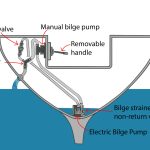In our ever-evolving world, sustainability is no longer a mere buzzword but a necessity that permeates every industry. The portable toilet industry, vital for events, construction sites, and outdoor gatherings, is no exception. Embracing sustainable practices is not only a moral imperative but also a strategic move that can lead to substantial benefits. Efficient pump systems, in particular, stand as a beacon of sustainability within this industry, offering a myriad of advantages that enhance environmental responsibility and economic efficiency.
Reducing Environmental Footprint
The cornerstone of sustainability in the portable toilet industry lies in minimizing the environmental impact. Traditional waste disposal methods often involve high water usage and chemical-laden processes, resulting in pollution and strain on local ecosystems. However, efficient pump systems integrate advanced technologies that significantly reduce water consumption and utilize eco-friendly disposal methods. These systems not only minimize water wastage but also promote the responsible handling of waste, fostering a more sustainable approach towards sanitation.
Energy Efficiency: A Dual Advantage
One of the primary features that position efficient pump systems as a beacon of sustainability is their enhanced energy efficiency. By optimizing the pump mechanisms, these systems consume less power during the waste disposal process. This reduction in energy consumption translates to lower operational costs for portable toilet providers while also lessening the strain on energy resources. Ultimately, energy efficiency is a win-win situation, benefiting both the environment and the economic bottom line.
Optimizing Resource Utilization
Efficiency in pump systems goes beyond energy conservation. It extends to the optimal utilization of resources such as time and labor. Traditional waste disposal methods often require significant manpower and time investments. Conversely, efficient pump systems streamline the waste disposal process, requiring fewer resources and enabling a more efficient workflow. This resource optimization results in cost savings and an improved operational structure within the portable toilet industry.
Prolonged Equipment Lifespan
Investing in efficient pump systems not only contributes to immediate sustainability benefits but also ensures a longer lifespan for the equipment. These systems are designed with durability and longevity in mind, minimizing the need for frequent replacements and repairs. Consequently, this longevity diminishes the environmental burden associated with the production and disposal of equipment, aligning with the overarching goal of sustainability.
Compliance with Regulatory Standards
In today’s regulatory landscape, adherence to environmental standards is paramount. Efficient pump systems, often designed with compliance in mind, aid portable toilet providers in meeting and surpassing these standards. By ensuring that waste disposal practices align with regulations, these systems contribute to a cleaner environment, bolstering the reputation and credibility of businesses within the portable toilet industry.
The Economic Advantages
Sustainability is not just about being environmentally conscious; it is also about making sound financial decisions. Efficient pump systems, by minimizing operational costs through energy and resource efficiency, directly impact the profitability of portable toilet businesses. As organizations increasingly prioritize sustainability, having such systems in place can be a market differentiator, attracting environmentally conscious clientele and fostering long-term business relationships.
In conclusion, the portable toilet industry stands at a critical juncture where sustainability is not an option but a prerequisite for growth and viability. Efficient pump systems play a pivotal role in achieving sustainability objectives by reducing the environmental footprint, optimizing resource utilization, and complying with regulatory standards. Moreover, they offer economic advantages that position businesses for long-term success. Embracing these systems is not just an investment in the present but a commitment to a sustainable and prosperous future.






